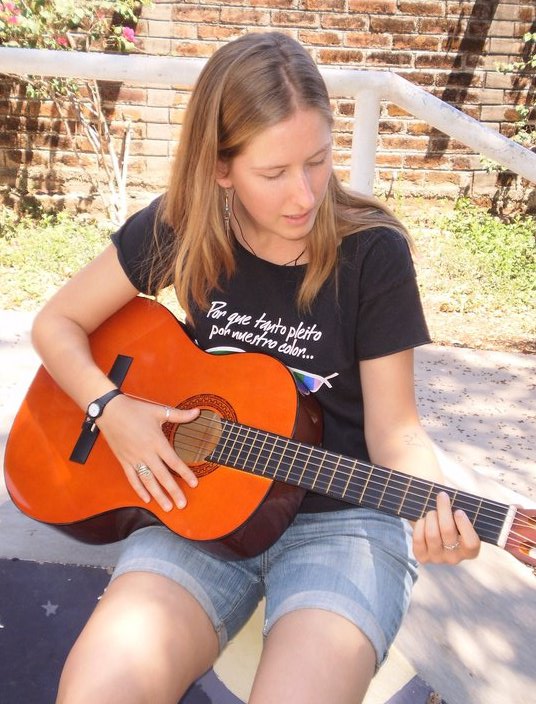We had the chance to meet with leaders of the town directive, women involved in the various community business projects for women, men involved in the fruit and vegetable cooperative, and former combatants in the armed conflict.
San Jose las Flores, as it is now, was established in 1986, mostly by families who had not lived there prior to the massacre (though there are certainly exceptions to this). It is easy to understand why, as one of our friends told us, "we receive absolutely no support from the government." It is a town with a community-run restaurant, bank, pharmacy, cooperative, ecotourism business (just getting off the ground), bakery, and clothing workshop. Children in the community are not allowed to work in community projects while they are of school age, as the investment in their education is seen by the community as well worth the wait. In a country like El Salvador, where the president signed the Central American Free Trade Agreement literally sight unseen out of a desire to appear open to all new and exciting waves of capitalism, it is pretty clear why this community gets no support. (The more I learn about the historical and current relationship between the US and El Salvador, the more I understand my own input into situations like this. It is not uplifting. But at the same time, there is so much going on here that is uplifting, just on smaller scales, that I believe Sister Peggy and all the others when they say that that people here live in hope.)
Our guides (sort of) for the weekend were two students of 17 and 18 years. They showed us around town, took us through the the fields of the cooperative and to a community soccer game, and led us on a hike before we left on Sunday morning. However, on that hike (or rather, from my time on the hike), I learned that there are plants that burn people with sensitive skin. As a result, Ani and I have lovely boils on our skin, she on her arms (both) and I on my left leg. Mine is small potatoes compared to hers, but it still stings and makes me not love whatever plant inflicted it. (From what I've found, I think it was rue, but I am not sure if rue actually grows in Central America.) All of that said, the trip up the mini-mountain to see the cross dedicated to the victims of a different massacre and the view of las Flores that it provides was well worth the burn.
Major things that stuck out for me from the weekend:
-No one who lived in las Flores, who we talked to, could imagine themselves living anywhere else. Often they would ask how we like it and, when we said very much and returned the question, they could speak volumes of how much they love the town and and offered that they would never leave of their own volition.
-Our initial assignment in going was to meet with one of the Spanish nuns who lives in the town and the priest to learn about this being a BCC. As it turned out, however, we never got a chance to meet with anyone directly employed by the church. In reality, though, it was just as well that we didn't. While I'm sure they would have had plenty of wonderful things to add and enriched our experience, without them, we were able to see the ways that people truly integrate their faith into their everyday lives in ways that compel them to think of the community in the same "breath" as thinking of God. I think it was a better introduction to the reality of life in a BCC because we saw the lives of the people who didn't have to be involved in church or religious activities, but still acted in whatever ways best contributed to the common good as this flowed out of their faith. It was impressive and inspiring.
-The words from a man whose guerilla name was Julio (again, this is for safety, as people here still get assassinated): "The most important thing is God. Second, solidarity among the people. And third, our organization; our struggle. But first God."

No comments:
Post a Comment